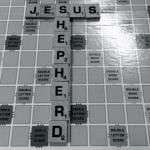
In Hosea 6:6, God tells Israel through the prophet Hosea that he desires mercy, not sacrifice. This raises a very important question: what, exactly, is mercy? In the following I will argue that the popular definition of mercy falls well short of its biblical meaning. When properly understood and practiced, mercy is arguably the defining ethic of God, his kingdom, and his people.
A Definition that Falls Short
I’m sure that many of you have heard, and perhaps used, the following definition of mercy. I know I have. Mercy is popularly defined as “not receiving what you deserve.” Thus, when you are guilty of something but don’t have to endure the punishment, you have received mercy.
This definition of mercy is often used in conjunction with a popular definition of grace. While mercy means you don’t receive something you do deserve, grace is when you do received something you don’t deserve.
By these definitions, if a convicted criminal cries out for mercy and the judge pardons him despite his guilt, he has received mercy. If the judge goes further and gives the criminal some sort of additional blessing, he has received grace.
While I think there is some truth to these definitions, I also think they fall far short of the full meaning of either term. A rich understanding of the Bible requires us to adopt much more complete definitions.
A Surprising Translation
I first became aware of the significance of mercy when I began to read the Greek translation of the Old Testament, popularly known as the Septuagint (abbreviated LXX).
In the Hebrew version of Hosea 6:6, God says that he desires hesed and not sacrifice.
I’ve seen hesed defined and translated various ways. For example, the NRSV and the ESV translate it “steadfast love.” My Hebrew lexicon offers words like “goodness, kindness, loving kindness.” Based on these definitions, I would have assumed that the Greek translators would have used the popular NT word, agape.
To my surprise, they did not. They chose eleos, “mercy.” Using my Bible software, I did a quick search of the Hebrew and Greek versions. What I found was a strong preference for “mercy” as the translation for hesed.
A Richer Definition
My Greek lexicon defines eleos, “mercy” as “kindness or concern for someone in serious need.” In a sense, this stands in sharp contrast to the popular definition. Rather than understanding mercy as the withholding of a negative consequence, the Bible understands mercy as the active provision of a positive benefit.
Perhaps the best example of mercy in action is story of the Good Samaritan in Luke 10:25-37. Jesus used the story to explain what love for one’s neighbor looks like. We are all familiar with the story. A man was attacked, robbed, and left for dead. Two different religious leaders passed by and didn’t help the man. Finally, a Samaritan stopped and helped, saving the man’s life.
The critical line comes when Jesus asks, “Which of the three was a neighbor to the man?” The response was, “The one who showed him mercy.” That is, the one who saw that the man was in serious need and showed him kindness and concern. The Samaritan’s concern for the man led him to action, to act in kindness. He drew from the abundance of his resources to provide the assistance the man needed.
Israel’s Lack of Mercy
God’s words in Hosea 6:6 must be understood against the backdrop of God’s broader indictments against sinful Israel. Among their many transgressions, Israel’s wealthy and powerful elite had failed to show mercy to their countrymen. There were many poor in Israel, people in serious need. The rich should have used their abundant resources to help these people. Instead, they leverage their wealth, power, and connections to take away what little the poor had.
Torah is replete with commands that demonstrate God’s heart for his people. He wanted Israel to be characterized by a radical generosity based on love and concern for those in serious need. Israel’s covenant unfaithfulness to God manifested itself in their lack of concern for their brothers and sisters. Rather than give them aid in their time of need, the wealthy exploited and oppressed them.
Mercy is the Chief Characteristic of God’s Kingdom
To appropriate the words of the apostle Paul, “These things happened as examples for us.” We need to learn from Israel’s history. The church is God’s kingdom. We need to be the people God has intended from the beginning. He wants us to be characterized by a radical concern for one another’s need and generosity to help with those needs.
In Matt. 5:7, Jesus teaches us, “Blessed are the merciful, for they will receive mercy.” It’s a basic sowing and reaping message. If we see people in serious need and intervene, using whatever resources we have to help, we will receive that when we are in serious need. Since this kind of need will always be present, we need to practice generosity (Deut. 15:11). This is how you end up with communities where there’s no one in need.
We see the church put this in action in Acts 2:43-47 and 4:32-37. Believers didn’t hoard their resources. Rather, they saw the resources as God’s provision so that they could help their needy brothers and sisters.
James questions whether a person has saving faith when he or she claims to have faith but doesn’t help a brother or sister in need (James 2:14-26). This is because he understood the teaching of Torah, the Prophets, and Jesus himself. Likewise, in 1 John 3:17-18, we read, “How does God’s love abide in anyone who has the world’s goods and sees a brother or sister in need and yet refuses help? Little children, let us love, not in word or speech, but in truth and action.” The NT writers understood that mercy was God’s highest priority.
Finding and Giving Mercy
My friends and I often joke that people register like rocks and trees to me. They tend to blend into the landscape. I’ve often been out for a run and had friends pass me unnoticed because I’m so deeply immersed into my own thoughts that the outside world barely registers. Unfortunately, this tendency undermines the practice of mercy.
I constantly pray that God would help me to be observant of my brothers and sisters in Christ. First, we must see their need. We must actively observe and listen so that we can identify need.
Second, we must treat our abundance as a God given resource to help our brothers and sisters in their time of need. This requires us to adopt an abundance mentality. Our basic needs are food, clothing, and shelter. Anything beyond this is abundance. Rather than hoarding our abundance for our own gratification and security, we must see it as a resource for helping our brothers and sisters in their time of need.
Third, we must not think strictly in terms of money. Many of us have an abundance of talents and skills that we can use to help our needy brothers and sisters. We can provide them free services that they can’t afford to pay for. Even our time is a resource we might be tempted to hoard, rather than freely give. It’s easy to look at our time as something we don’t have enough of. I tend to fall into this category. We need to see our skills and our time as part of our abundance. They are resources for serving others, not ourselves and our own pleasure.
A Lifestyle of Mercy
Far too many Christian think they’ve fulfilled their obligation to give by dropping money into the offering plate. I encourage you to do give this way. However, this will mean little if we are not equally as generous to our fellow Christians.
Our witness to the world is our kindness and concern for our brothers and sisters in serious need. If the world does not see us practicing this, then we need to take a hard look at ourselves. We need to ask if we are living up to our calling to be the people of God. Even more so, if we’re not, will God discipline us in order to help us learn (Rev. 3:14-22)?
On a final note, I’ve heard many pastors use 1 Corinthians 8-9 to urge people to be generous in their tithes and offerings. In fact, Paul is urging the Corinthians to be generous in a collection Paul is gathering to help Christians who are suffering during a famine. I encourage you to re-read these passages in this light and challenge yourself to look for opportunities to use your abundance to help your brothers and sisters in their time of need: money, time, and skills.

















